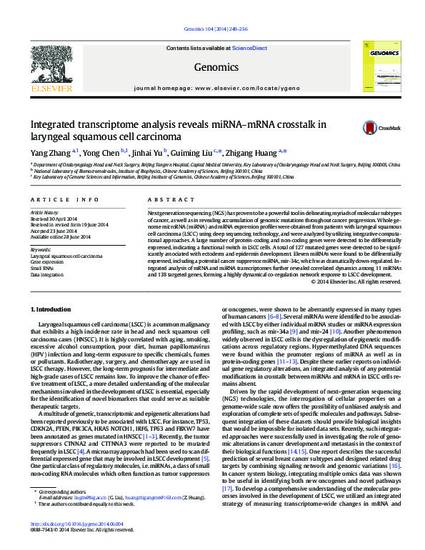
Next generation sequencing (NGS) has proven to be a powerful tool in delineating myriads of molecular subtypes of cancer, as well as in revealing accumulation of genomic mutations throughout cancer progression. Whole genome microRNA (miRNA) and mRNA expression profiles were obtained from patients with laryngeal squamous cell carcinoma (LSCC) using deep sequencing technology, and were analyzed by utilizing integrative computational approaches. A large number of protein-coding and non-coding genes were detected to be differentially expressed, indicating a functional switch in LSCC cells. A total of 127 mutated genes were detected to be significantly associated with ectoderm and epidermis development. Eleven miRNAs were found to be differentially expressed, including a potential cancer suppressor miRNA, mir-34c, which was dramatically down-regulated. Integrated analysis of mRNA and miRNA transcriptomes further revealed correlated dynamics among 11 miRNAs and 138 targeted genes, forming a highly dynamical co-regulation network response to LSCC development.
Yang Zhang, Chen Yong, Yu Jinhai, Liu Guiming, Huang Zhigang. (2014). Integrated transcriptome analysis reveals miRNA-mRNA crosstalk in laryngeal squamous cell carcinoma. Genomics 104(4), 249-256.

This article was made available through Elsevier Open Access.